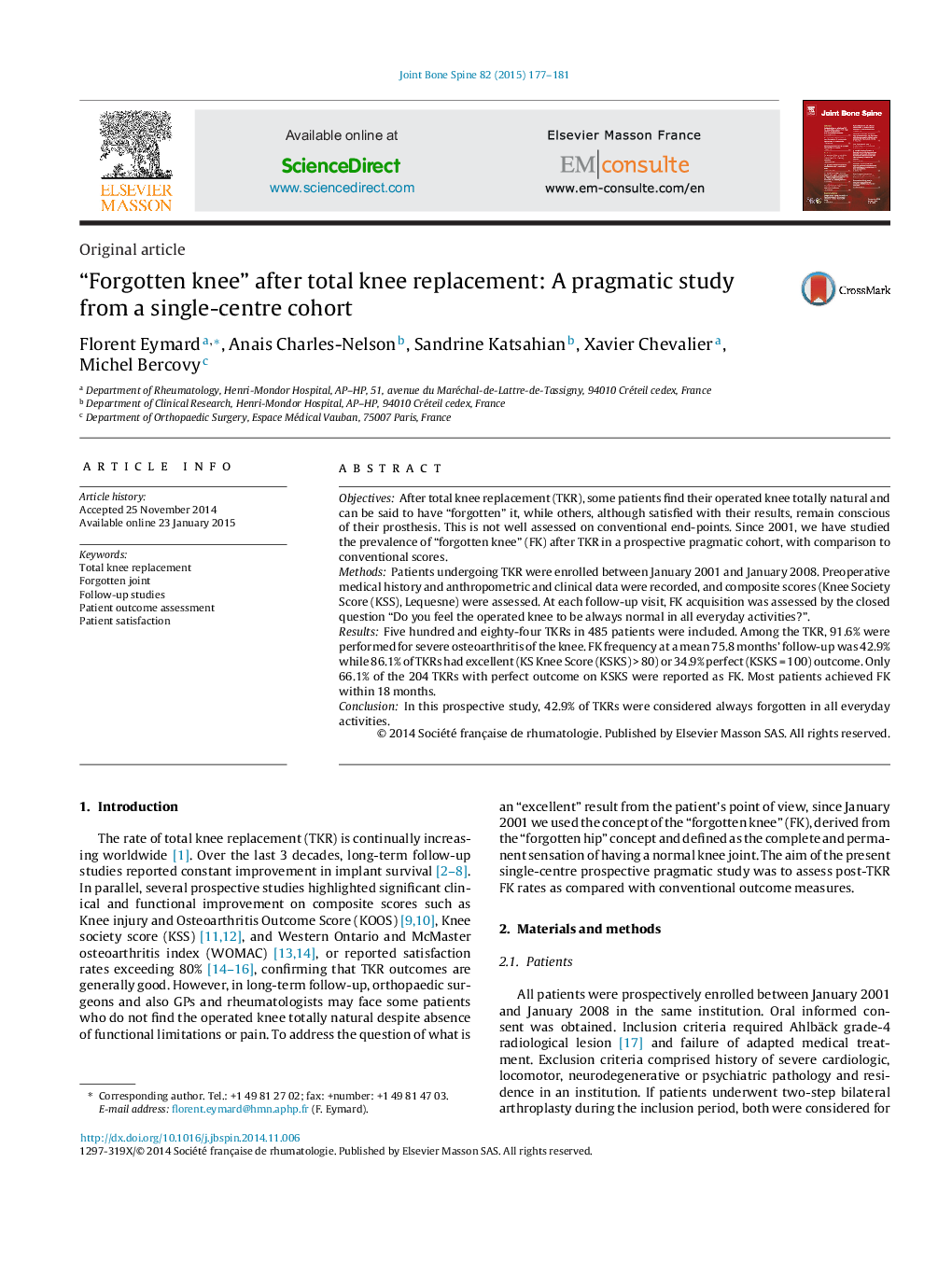| Article ID | Journal | Published Year | Pages | File Type |
|---|---|---|---|---|
| 3365633 | Joint Bone Spine | 2015 | 5 Pages |
ObjectivesAfter total knee replacement (TKR), some patients find their operated knee totally natural and can be said to have “forgotten” it, while others, although satisfied with their results, remain conscious of their prosthesis. This is not well assessed on conventional end-points. Since 2001, we have studied the prevalence of “forgotten knee” (FK) after TKR in a prospective pragmatic cohort, with comparison to conventional scores.MethodsPatients undergoing TKR were enrolled between January 2001 and January 2008. Preoperative medical history and anthropometric and clinical data were recorded, and composite scores (Knee Society Score (KSS), Lequesne) were assessed. At each follow-up visit, FK acquisition was assessed by the closed question “Do you feel the operated knee to be always normal in all everyday activities?”.ResultsFive hundred and eighty-four TKRs in 485 patients were included. Among the TKR, 91.6% were performed for severe osteoarthritis of the knee. FK frequency at a mean 75.8 months’ follow-up was 42.9% while 86.1% of TKRs had excellent (KS Knee Score (KSKS) > 80) or 34.9% perfect (KSKS = 100) outcome. Only 66.1% of the 204 TKRs with perfect outcome on KSKS were reported as FK. Most patients achieved FK within 18 months.ConclusionIn this prospective study, 42.9% of TKRs were considered always forgotten in all everyday activities.
